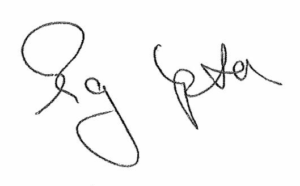- Home
- About AHP
- Publications
- Order Monographs
- White Mulberry Leaf Assessment
- COVID-19 White Paper Development
- AHP Monographs Under Development
- Botanical Pharmacognosy Textbook
- Cannabis, Seizures and Epilepsy: A Scientific Review
- Monograph Announcements
- Monograph Errata
- Monograph Prioritization
- Sample Monograph
- AHP Verified™ BRM
- HPTLC Association
- Services
- Join Us
- Contact
Shatavari Root (Asparagus racemosus Willd.) Monograph and Therapeutic Compendium

- FUNDED $5,628
- NEEDED $31,642
- GOAL $37,270
- FUNDED 15%
Summary
The American Herbal Pharmacopoeia® (AHP) has begun the development of an AHP Monograph and Therapeutic Compendium for Shatavari Root (Asparagus racemosus Willd.), a renowned Ayurvedic herb used as a tonic for balance and rejuvenation for the reproductive system, especially female reproduction, and for immune support. While mostly unknown in North America, Its importance as an herbal dietary supplement ingredient has risen in popularity in recent years. In addition to establishing quality control standards for the raw material and testing methodology to detect adulterations the Monograph will be accompanied by a Therapeutic Compendium covering the history and traditional use of the herb in Ayurveda, pharmacokinetics, pharmacodynamics, and safety.
For the development of the Shatavari Monograph and Therapeutic Compendium AHP has partnered with Professor Dr Amina Ather of AAH Naturlich, Germany. Prof Ather has been involved with medicinal plant research of Ayurvedic herbs for decades with a special focus on Ayurveda and women’s health and, with her research team comprised of Ayurvedic specialists, botanists, chemists, and pharmacologists, is uniquely suited for providing a comprehensive review of shatavari that will then be subjected to the peer review process of AHP and its many advisors and reviewers. AHP is excited to see awareness of shatavari grow in North America as it is one of the most highly regarded herbs of Ayurveda that is deserving of greater notoriety. Shatavari contains a group of saponins known for their ability to bind to androgen receptors that contribute to its reproductive effects. The name shatavari refers to it consisting of “100 roots” but is poetically referred to as having 100 hundred husbands”. There are few herbs in other herbal traditions that hold the same regard as a female reproductive tonic making shatavari a unique contribution to North American materia medica and the natural products industry.
AHP monographs represent the most comprehensive and critically reviewed body of information on herbal medicines in the English language, and serve as a primary reference for academicians, health care providers, manufacturers, and regulators. All AHP monographs are developed by acknowledged experts in the field of medicinal plants and include a diverse array of experts in botany, pharmacognosy, natural products chemistry and analysis, pharmacology, toxicology, and traditional herbal medicine. As with all AHP monographs, a suite of scientifically valid identi¬fication tests will be provided, along with appropriate drawings and photographic images to help in the identification of the species.We hope you will give this your sincere consideration.
Sincerely,

Roy Upton, President
American Herbal Pharmacopoeia
Table of Contents
Nomenclature
- Botanical Nomenclature
- Botanical Family
- Pharmaceutical Nomenclature
- Definition
- Common Names
Identification
- Botanical Identification
- Macroscopic Identification
- Microscopic Identification
Constituents
Therapeutics
Pharmacokinetics
- Clinical Efficacy and Pharmacodynamics
- Actions
- Medical Indications Supported by Clinical Trials
- Medical Indications Supported by Traditional or Modern Experience
- Substantiation for Structure and Function Claims
- Dosages
International Status
History
Commercial Sources & Handling
- Collection
- Cultivation
- Handling and Processing
- Drying
- Storage
- Qualitative Differentiation
- Adulterants
- Preparations
- Environmental Sustainability
Analytical
- Thin Layer Chromatography (TLC/HPTLC)
- Quantitative Standards
Safety Profile
- Side Effects
- Contraindications
- Interactions
- Pregnancy, Mutagenicity, and Reproductive Toxicity
- Lactation
- Carcinogenicity
- Influence on Driving
- Precautions
- Overdose
- Treatment of Overdose
- Toxicology
- Classification of the American Herbal Products Association
References
Sponsorship
Elder Flower Sambucus nigra and closley related species Monograph and Therapeutic Compendium
$5,000 of $21,270 raised
* Please note: The full sponsorship goal of the Elder Flower Sambucus nigra and closley related species Monograph and Therapeutic Compendium Sponsorship project is $21,270. If you would like to donate the full sponsorship amount, please contact us and we’ll send you an invoice.
